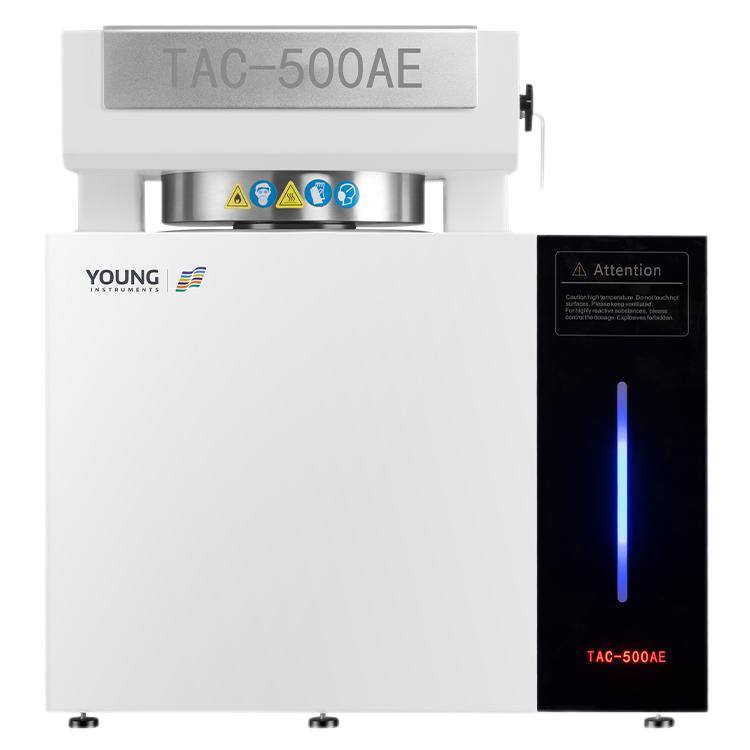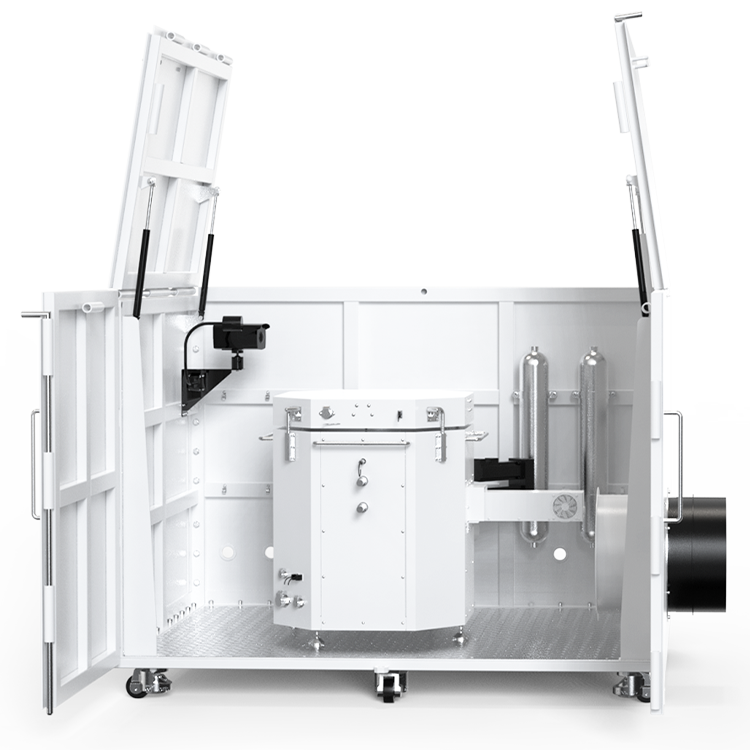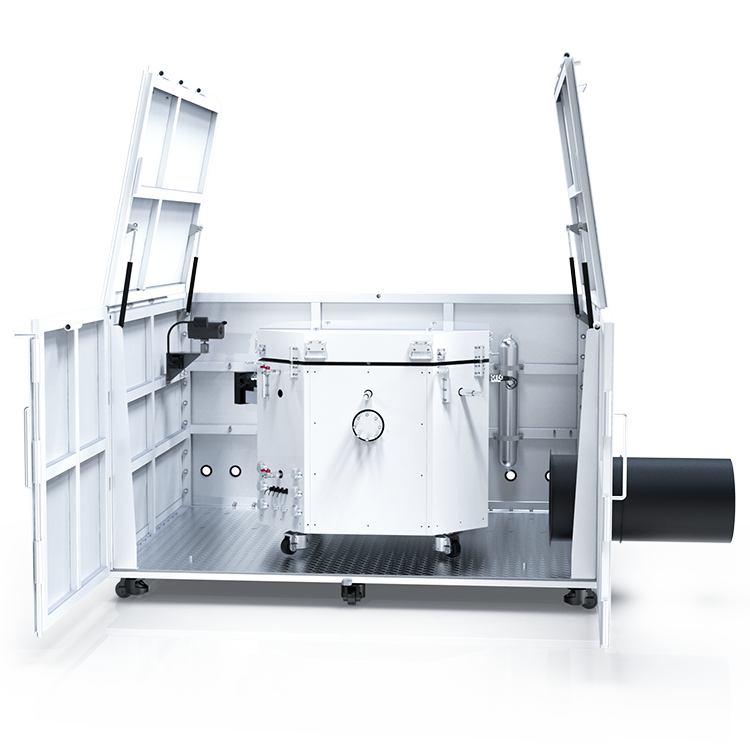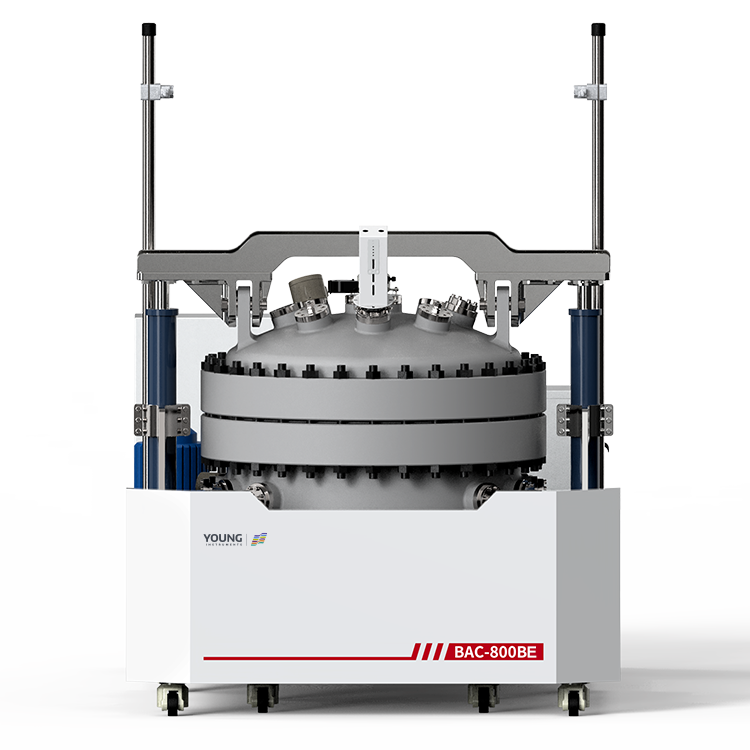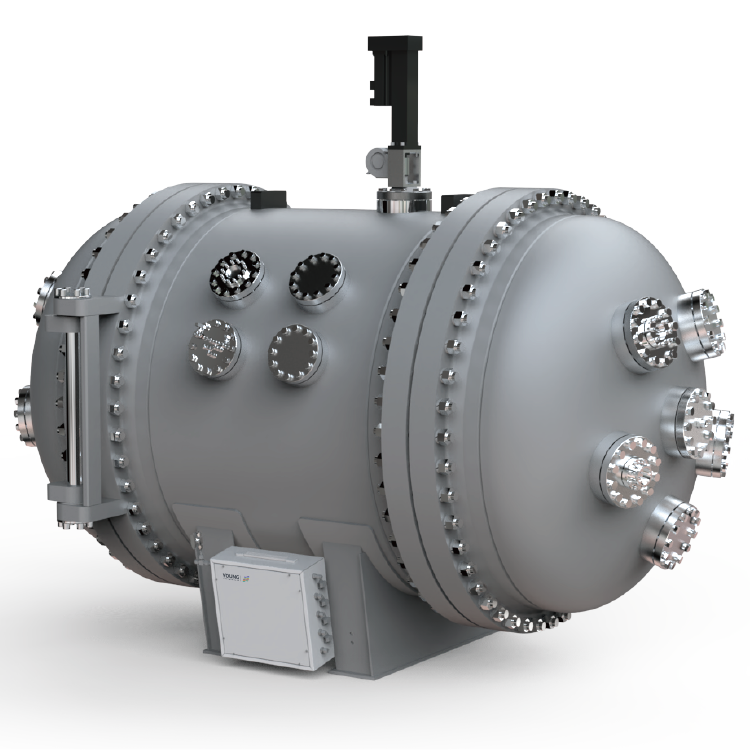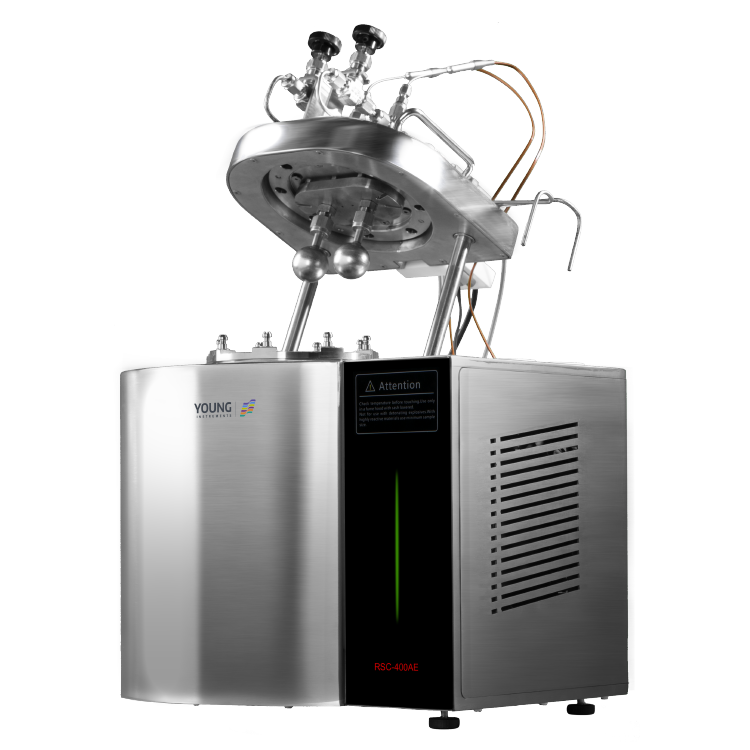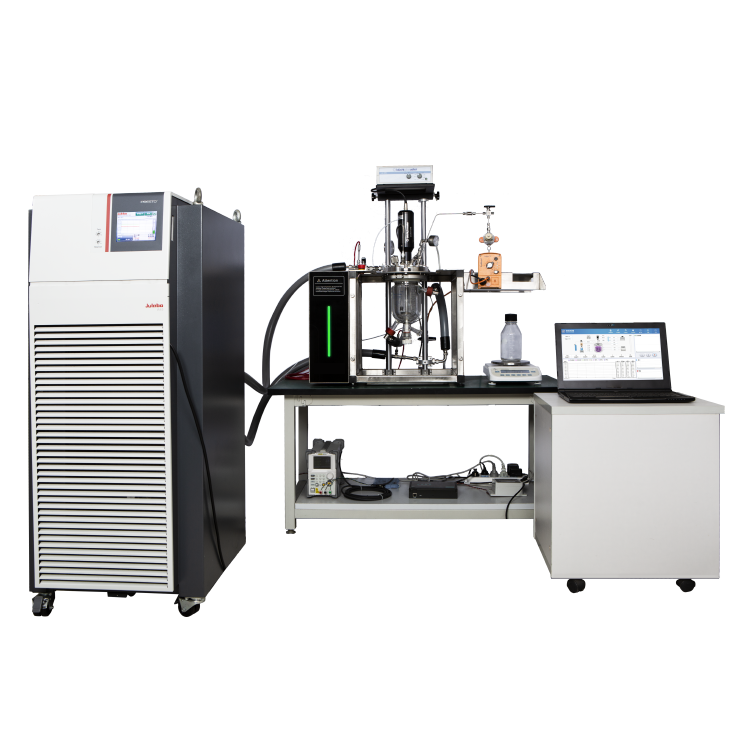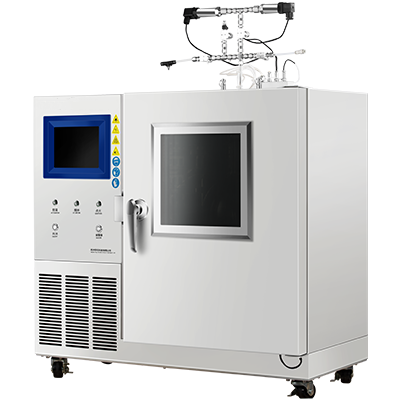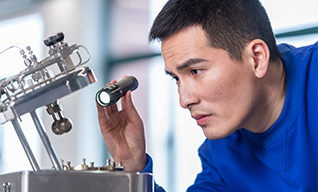Battery Safety with the Battery Adiabatic Calorimeter BAC-420AE Lithium Battery Testing
Have you ever paused to consider why lithium batteries, despite their remarkable efficiency and widespread use, occasionally present serious safety risks, such as fires or even explosions? The root cause lies in their inherently high energy density coupled with their self-reactive chemical nature. When subjected to abusive or abnormal conditions, these batteries can unpredictably generate excessive heat, triggering a phenomenon known as thermal runaway—a dangerous chain reaction that may lead to catastrophic outcomes.
To address and mitigate these risks effectively, researchers require sophisticated tools to thoroughly assess and minimize the potential hazards posed by lithium batteries. This is where the Large Battery Adiabatic Calorimeter BAC-420AE steps in—a cutting-edge solution developed by Hangzhou Zeal Instruments Science & Technology Co., Ltd. This state-of-the-art instrument provides an advanced, precision-based testing platform aimed at preventing thermal runaway and ensuring the safety of high-energy lithium batteries.
Delving in to the BAC-420AE: A Game-Changer in Battery Safety Testing
Lithium batteries are the cornerstone of modern technology, powering everything from handheld devices like smartphones to large-scale systems such as electric vehicles. As the demand for larger, more energy-dense batteries continues to grow, so too does the necessity for stringent and robust safety testing procedures. The Battery Adiabatic Calorimeter BAC-420AE offers unmatched testing capabilities, particularly for large battery cells and modules, guaranteeing that safety is maintained without compromising the batteries’ performance capabilities.
The Battery Adiabatic Calorimeter BAC-420AE incorporates multiple testing modalities, including thermal, electrical, and mechanical stress scenarios. Its design facilitates the simulation of real-world conditions, where batteries may encounter various stresses, enabling engineers to detect critical thermal behaviors well before they escalate into hazardous situations. With its advanced data collection and analysis functions, this calorimeter captures a broad spectrum of essential parameters—such as specific heat capacity, heat generation during charging and discharging, and the temperature at which thermal runaway initiates. This comprehensive dataset provides researchers with the insights necessary to understand the mechanisms driving thermal runaway and reveals how heat propagates throughout the battery system.
Key Parameters for a Holistic Safety Evaluation
The Battery Adiabatic Calorimeter BAC-420AE stands out due to its ability to capture an extensive range of crucial battery performance metrics, which form the foundation for a thorough safety evaluation. These parameters include:
Thermal Runaway Onset Temperature – The critical temperature at which a battery begins to exhibit uncontrolled exothermic reactions.
Maximum Rate of Temperature Rise – An important metric for determining how rapidly thermal events can intensify.
Adiabatic Temperature Rise – Offers key insights into the extent of heat generation a battery produces without any heat exchange with its surroundings.
Specific Heat Capacity – A measure of the energy required to raise the battery’s temperature under varying conditions.
By analyzing these detailed parameters, engineers and researchers are better equipped to anticipate and manage potential hazards, making the BAC-420AE an indispensable asset in lithium battery safety research and development.
Why the BAC-420AE Represents a Paradigm Shift in Battery Testing
Superior Explosion Resistance and Sealing Capabilities
One of the unique aspects of the Battery Adiabatic Calorimeter BAC-420AE is its vastly improved explosion resistance and sealing capabilities compared to more conventional battery adiabatic calorimeters. Through exceptional structural design and advanced system integration, the calorimeter is capable of withstanding extreme test conditions without compromising on its sensitivity or the precision of its measurements. This capability is crucial, especially when testing large or volatile battery modules, as it ensures that safety is maintained throughout the testing process.
Real-World Condition Simulation in an Optimal Adiabatic Environment
The Battery Adiabatic Calorimeter BAC-420AE excels in simulating an ideal adiabatic environment, one in which there is no heat exchange between the battery and its external environment, thereby allowing for more accurate readings of critical thermal behaviors. These behaviors include the onset temperature of thermal runaway and the rate of temperature increase, which are crucial for understanding how batteries respond under stress. This ability to simulate real-world conditions with such precision offers invaluable insights into battery safety and performance.
Furthermore, the Battery Adiabatic Calorimeter BAC-420AE has the capability to simultaneously gather data related to battery voltage, current, temperature, and pressure during testing. This provides a comprehensive, multi-faceted view of the battery’s behavior, offering researchers a more complete understanding of the battery’s performance under test conditions. The integrated charging and discharging module also enhances the device’s flexibility, allowing for real-time adjustments in charging/discharging currents and offering the ability to switch between constant current and constant voltage modes.
Global Standard Compliance for Wide Applicability
The BAC-420AE conforms to a wide range of international testing standards, making it a valuable tool for battery safety research across different industries and regions. Among the standards it adheres to are:
- GB/T 36276-2023
- UL 9540A
- E1981-98(2012)
- SN/T 3078.1-2012
- USABC SAND99-0497
- SAE J2464-R2009
By aligning with these recognized standards, the BAC-420AE guarantees that the data it produces is not only accurate but also universally accepted by industries ranging from automotive manufacturers to electronics producers.
Cutting-Edge Features of the BAC-420AE
Thermal Runaway and Temperature Rise Testing for Proactive Risk Assessment
Among the many standout features of the Battery Adiabatic Calorimeter BAC-420AE is its ability to conduct adiabatic thermal runaway and temperature rise testing. This allows researchers to proactively assess the risks associated with thermal runaway under abnormal conditions, providing vital data that can assist companies in optimizing their battery designs. By predicting the conditions under which thermal runaway might occur, companies can develop safer, more robust batteries that are less prone to dangerous failures, significantly improving the overall safety of their battery systems.
Gas Generation Testing for Enhanced Venting and Explosion-Prevention Systems
Another key feature is the gas generation testing capability, which is particularly useful for understanding battery behavior during thermal runaway or other extreme conditions. The BAC-420AE enables researchers to capture and analyze gases produced during testing, offering valuable insights into the development of improved venting and explosion-prevention systems. Through qualitative and quantitative analysis of gas generation, the calorimeter helps ensure that even under the most severe conditions, battery safety is maintained.
Precision Heat Testing During Charging and Discharging for Improved Thermal Management
Lithium batteries are known to generate heat during both charging and discharging cycles, and poor heat management can lead to a host of problems, from decreased efficiency to safety risks. The Battery Adiabatic Calorimeter BAC-420AE offers precise heat testing during these processes, providing crucial data for companies seeking to enhance their battery thermal management systems. This data ensures that batteries operate efficiently and safely across a wide range of conditions.
Advanced Data Collection Tools for Comprehensive Analysis
The BAC-420AE is not just a testing device but also an advanced analytical tool, equipped with multiple external interfaces that allow for seamless data collection and integration. During testing, real-time video monitoring provides a visual record of the battery’s behavior, while the calorimeter’s airtight design ensures accurate pressure data collection. Additionally, the BAC-420AE analyzes gas composition, offering invaluable insights that can lead to improved battery safety designs.
Meeting the Demands of a Rapidly Expanding Industry
With the escalating demand for high-capacity, high-energy batteries, the need for advanced safety testing has never been more critical. The BAC-420AE Large Battery Adiabatic Calorimeter from Hangzhou Zeal Instruments Science & Technology Co., Ltd. is poised to meet these challenges by providing a highly flexible, accurate, and robust platform for safety testing. Whether it’s thermal runaway analysis, gas generation testing, or managing heat during charging cycles, this device is equipped to deliver the data researchers and manufacturers need to enhance battery safety and performance.
By incorporating the BAC-420AE into their testing processes, companies can stay ahead of the curve in developing safer, more efficient lithium batteries, ensuring the continued evolution of this critical energy storage technology across a wide range of industries.
Conclusion: Paving the Way for the Future of Battery Safety
The Battery Adiabatic Calorimeter BAC-420AE is far more than just a tool; it represents a gateway to a deeper understanding of lithium battery safety. With its cutting-edge features, compliance with international standards, and comprehensive testing capabilities, this device from Hangzhou Zeal Instruments Science & Technology Co., Ltd. is an essential asset for any research or development team focused on lithium batteries. By providing accurate, real-time data on thermal behavior, the BAC-420AE is helping shape the next generation of safe, reliable energy storage solutions.








